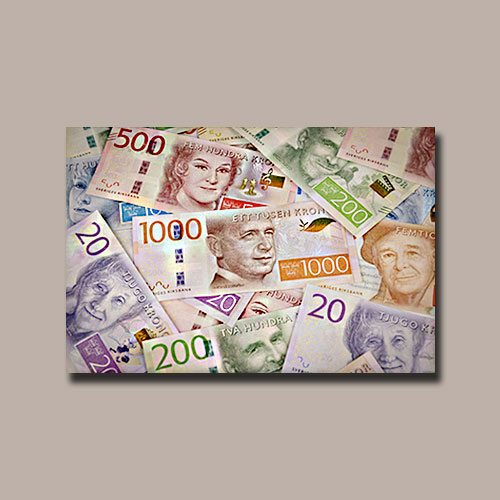Sweden Oscillates Between Cashless and Cash Based Transactions to Test the Waters
2019-08-01 Thu
Sweden has been one of the many emerging economies around the world that have been openly promoting digital and cashless payments in the last few years. Experts believe that the country would fully switch to cashless transactions within four years. However, there was a change in this ongoing trend last year, as the number of circulating banknotes and coins increased for the first time after a period of more than 10 years. As per the European Central Bank, the number rose by 7% in 2018 to 62.2 billion krona. Such an increase was last seen in the year 2007. Since then, circulating currency has reduced by almost 45%.Senior citizens and other such groups have resisted the idea of cashless transactions. However, the sudden increase in the number of circulating notes was because the Government had facilitated the exchange of old currency notes and coins to replace them with new currency. Some people might have stocked up more hard cash as they were worried about problems such as data center crash or a cyber-crime. A lot of Swedes, on the other hand, prefer using cards or mobile wallets. Poorer citizens and those who aren’t tech-savvy prefer the traditional way. There’s a group of people who want to keep their transactions private or like more flexible payment options.
As per media reports, certain banks and shops do not accept or process hard cash. The Central Bank notes that all banks must accept the legal currency. The Legislative council of Sweden is also trying to fine-tune the laws that make it mandatory for businesses and traders to accept cash. Even after all these measures, experts believe that more and more people would switch to cashless transactions in the future. Some even predict that banks would charge a fee for using physical money. All eyes are on Sweden as economists closely analyse how a cashless society would function in reality.
Image Courtesy: Wikimedia Commons
Latest News
-
Janma Kalnayak of Bhagwan Mahavir
2024-04-24 WedOn 21st April 2024 which was the 2550th Janma Kalnyanak of Bhagwan Mahavir Swami, PM Modi unveile...
-
Gold Pagoda of Vijaynagar Empire King Deva Raya I
2024-04-10 WedKing Deva Raya I of the Vijayanagara Empire was a patron of Kannada literature and architecture. He ...
-
Silver Denarius of Septimus Severus
2024-04-05 FriLucius Septimius Severus served as the Roman emperor from 193 to 211 AD. Severus sat on the throne o...
-
Extremely rare 'Malaharamari' type Gold Gadyana of King Guhalladeva-III Sold for INR 611000
2024-04-03 WedTribhuvanamalla, also known as Guhalladeva III, was the ruler of the Kadamba dynasty. His reign coin...
-
90 Years of RBI
2024-04-02 TueOn 1st April, PM #Modi unveiled a special commemorative coin marking 90 Years since the foundation o...

